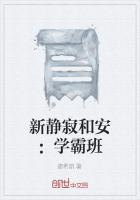Swollen, bruised, discolored, every feature had been beaten out of all semblance of familiarity. One eye was entirely closed, the other showed through a narrow slit of blood-congested flesh. One ear seemed to have lost most of its skin. The whole face was a swollen pulp. His right jaw, in particular, was twice the size of the left. No wonder his speech had been thick, was her thought, as she regarded the fearfully cut and swollen lips that still bled. She was sickened by the sight, and her heart went out to him in a great wave of tenderness. She wanted to put her arms around him, and cuddle and soothe him; but her practical judgment bade otherwise.
"You poor, poor boy," she cried. "Tell me what you want me to do first. I don't know about such things."
"If you could help me get my clothes off," he suggested meekly and thickly. "I got 'em on before I stiffened up."
"And then hot water--that will be good," she said, as she began gently drawing his coat sleeve over a puffed and helpless hand.
"I told you they was all thumbs," he grimaced, holding up his hand and squinting at it with the fraction of sight remaining to him.
"You sit and wait," she said, "till I start the fire and get the hot water going. I won't be a minute. Then I'll finish getting your clothes off."
From the kitchen she could hear him mumbling to himself, and when she returned he was repeating over and over:
"We needed the money, Saxon. We needed the money."
Drunken he was not, she could see that, and from his babbling she knew he was partly delirious.
"He was a surprise box," he wandered on, while she proceeded to undress him; and bit by bit she was able to piece together what had happened. "He was an unknown from Chicago. They sprang him on me. The secretary of the Acme Club warned me I'd have my hands full. An' I'd a-won if I'd been in condition. But fifteen pounds off without trainin' ain't condition, Then I'd been drinkin' pretty regular, an' I didn't have my wind."
But Saxon, stripping his undershirt, no longer heard him. As with his face, she could not recognize his splendidly muscled back.
The white sheath of silken skin was torn and bloody. The lacerations occurred oftenest in horizontal lines, though there were perpendicular lines as well.
"How did you get all that?" she asked.
"The ropes. I was up against 'em more times than I like to remember. Gee! He certainly gave me mine. But I fooled 'm. He couldn't put me out. I lasted the twenty rounds, an' I wanta tell you he's got some marks to remember me by. If he ain't got a couple of knuckles broke in the left hand I'm a geezer.--Here, feel my head here. Swollen, eh? Sure thing. He hit that more times than he's wishin' he had right now. But, oh, what a lacin'!
What a lacin'! I never had anything like it before. The Chicago Terror, they call 'm. I take my hat off to 'm. He's some bear.
But I could a-made 'm take the count if I'd ben in condition an' had my wind.--Oh! Ouch! Watch out! It's like a boil!"
Fumbling at his waistband, Saxon's hand had come in contact with a brightly inflamed surface larger than a soup plate "That's from the kidney blows," Billy explained. "He was a regular devil at it. 'Most every clench, like clock work, down he'd chop one on me. It got so sore I was wincin' ... until I got groggy an' didn't know much of anything. It ain't a knockout blow, you know, but it's awful wearin' in a long fight. It takes the starch out of you."
When his knees were bared, Saxon could see the skin across the knee-caps was broken and gone.
"The skin ain't made to stand a heavy fellow like me on the knees," he volunteered. "An' the rosin in the canvas cuts like Sam Hill."
The tears were in Saxon's eyes, and she could have cried over the manhandled body of her beautiful sick boy.
As she carried his pants across the room to hang them up, a jingle of money came from them. He called her back, and from the pocket drew forth a handful of silver.
"We needed the money, we needed the money," he kept muttering, as he vainly tried to count the coins; and Saxon knew that his mind was wandering again.
It cut her to the heart, for she could not but remember the harsh thoughts that had threatened her loyalty during the week past.
After all, Billy, the splendid physical man, was only a boy, her boy. And he had faced and endured all this terrible punishment for her, for the house and tha furniture that were their house and furniture. He said so, now, when he scarcely knew what he said. He said "WE needed the money." She was not so absent from his thoughts as she had fancied. Here, down to the naked tie-ribs of his soul, when he was half unconscious, the thought of her persisted, was uppermost. We needed the money. WE!
The tears were trickling down her checks as she bent over him, and it seemed she had never loved him so much as now.
"Here; you count," he said, abandoning the effort and handing the money to her. "... How much do you make it?"
"Nineteen dollars and thirty-five cents."
"That's right ... the loser's end ... twenty dollars. I had some drinks, an' treated a couple of the boys, an' then there was carfare. If I'd a-won, I'd a-got a hundred. That's what I fought for. It'd a-put us on Easy street for a while. You take it an' keep it. It's better 'n nothin'."
In bed, he could not sleep because of his pain, and hour by hour she worked over him, renewing the hot compresses over his bruises, soothing the lacerations with witch hazel and cold cream and the tenderest of finger tips. And all the while, with broken intervals of groaning, he babbled on, living over the fight, seeking relief in telling her his trouble, voicing regret at loss of the money, and crying out the hurt to his pride. Far worse than the sum of his physical hurts was his hurt pride.















